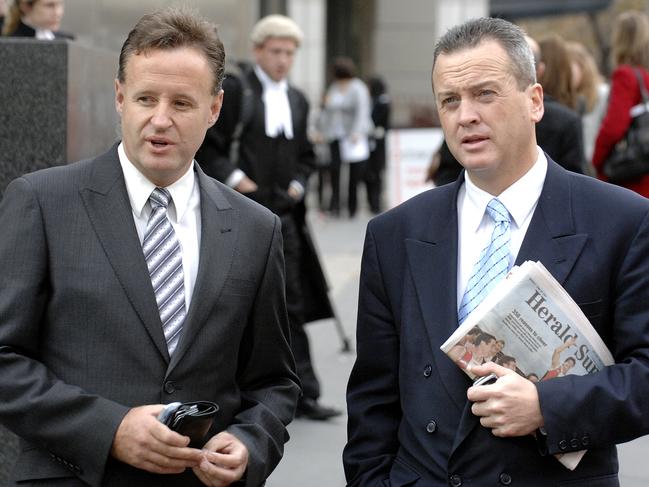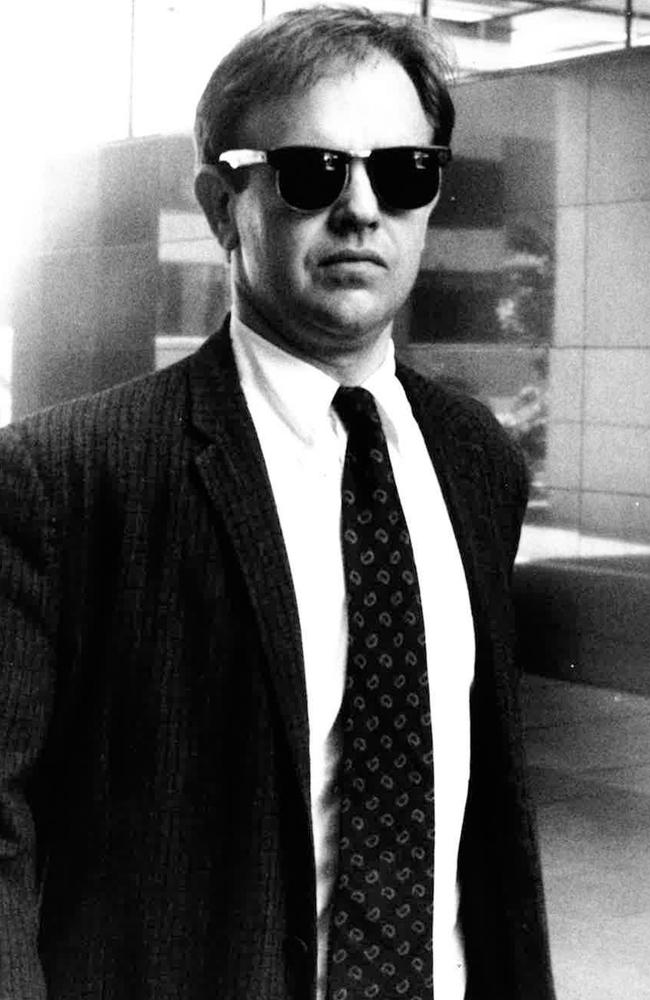Opinion: Qld long overdue for shield laws for journalists
Queensland is the only Australian state yet to introduce laws that are vital to a functioning democracy. What an embarrassment, writes former Courier-Mail editor Greg Chamberlin.
Opinion
Don't miss out on the headlines from Opinion. Followed categories will be added to My News.
It is well past time for Queensland to introduce shield laws for journalists.
What an embarrassment to be the only state left wanting!
Shield laws: State Government to consider reforms to protect journalists
LNP’s vow on journalist shield laws
Media companies, union call on government to fix flawed laws that threaten journalists, sources
The issue has been on the table since July 1991, when then attorney-general Dean Wells obtained Cabinet approval to pursue reform of contempt laws which effectively would cover confidential communications before a court or tribunal.
However legal experts who work extensively on behalf of media organisations, for example Justin Quill in Victoria, warn that shield laws need to be strong to be effective.
The irony, in Queensland, is that a court can tend to be blind to the work undertaken by a journalist they subsequently wish to fine or send to jail for refusing to identify a source he or she has undertaken to protect.
Little do they consider the consequences for a journalist who does; their professional reputation is forever sullied.
Ask any editor.
In 2007, former News Ltd chairman, chief executive, journalist and editor John Hartigan made his view clear: “It is essential to the way our democracy operates that the federal attorney-general and his state counterparts can agree on shield laws as soon as possible.”

Hartigan was speaking after reporters Michael Harvey and Gerard McManus in Melbourne were convicted and fined $7000 each for refusing to answer questions about the source of a newspaper report they wrote in 2004.
The report was based on leaked information — that the Federal Government planned to short-change war veterans of $500 million.
Despite being spared a jail term, both now had criminal convictions.
The Chief County Court Judge acknowledged the journalists’ professional code of ethics to protect sources, but ruled the journalists were not immune to criminal charges.
“Courts in Australia and England have made clear statements to the effect that journalists are not above the law and may not, without penalty, expect to be permitted to follow their personal collegiate standards where those standards conflict with the laws of the land,” he said.
Outside court, Harvey and McManus said that despite avoiding jail, they were disappointed about receiving convictions.
“Essentially, we’re here for doing our jobs.”
McManus said if he and Harvey had revealed the source of their article, their reputations would be in tatters.
“A journalist has to protect their sources,” McMcManus said.
“It’s paramount to any journalist and I think any other journalist in the country would have done the same thing.”

Courier-Mail reporter Joe Budd was jailed in 1992 over a comprehensive article he wrote in 1989 which led to a defamation action against the newspaper.
By 1992 Budd had left Queensland and had a new job in the US.
In giving evidence before Mr Justice Dowsett, of the Supreme Court, he refused to identify a high ranking public servant whom he had undertaken not to identify.
The judge considered that the question was relevant in testing Budd’s credibility as a witness.
In convicting him of contempt, he sentenced him to 14 days’ jail.
“I find it impossible to understand why any journalist should think that he is entitled to make statements about another person which may, on their face, be correct or otherwise, and when proceedings are brought to establish that they are not true and that they are defamatory, seek to conceal the source, contrary to law, asserting some high-handed view that this is in the public interest...”
Budd became the second journalist in Australia to be jailed for doing his job.
In a current case, a Supreme Court judge has ruled that an unnamed journalist must reveal a confidential police source to the corruption watchdog or risk being jailed.
The judge says that the ethical approach to protecting a source in this case did not extend to the law.
Shield laws would demand a quick solution: if a journalist provides an undertaking to a source, he/she has committed to honouring it.
In this newspaper on July 3 last year, 30 years after Tony Fitzgerald QC handed the findings of his groundbreaking inquiry to the Queensland government, Crime and Corruption Commission chairman Alan MacSporran QC wrote: “The inquiry changed the policing and political landscape in Queensland and across Australia.”
The catalyst for the Fitzgerald inquiry was the work of journalists – Phil Dickie of The Courier-Mail and Chris Masters of ABC’s Four Corners.
After the inquiry, Dickie became an adviser for four years to the newly formed Criminal Justice Commission, a key plank in Fitzgerald’s recommendations.
The CCC, with its far-reaching powers including its “star chamber”, was the result of an amalgamation not envisaged in the recommendations.
It came into operation in July 2014.
Mr MacSporran wrote last year: “The CCC is proud to be the custodian of an important part of Queensland’s history and an essential part of its future.”
Tough, unequivocal shield laws should also form part of that future.
Greg Chamberlin was editor of The Courier-Mail when the newspaper’s reporting of official corruption led to the Fitzgerald inquiry
